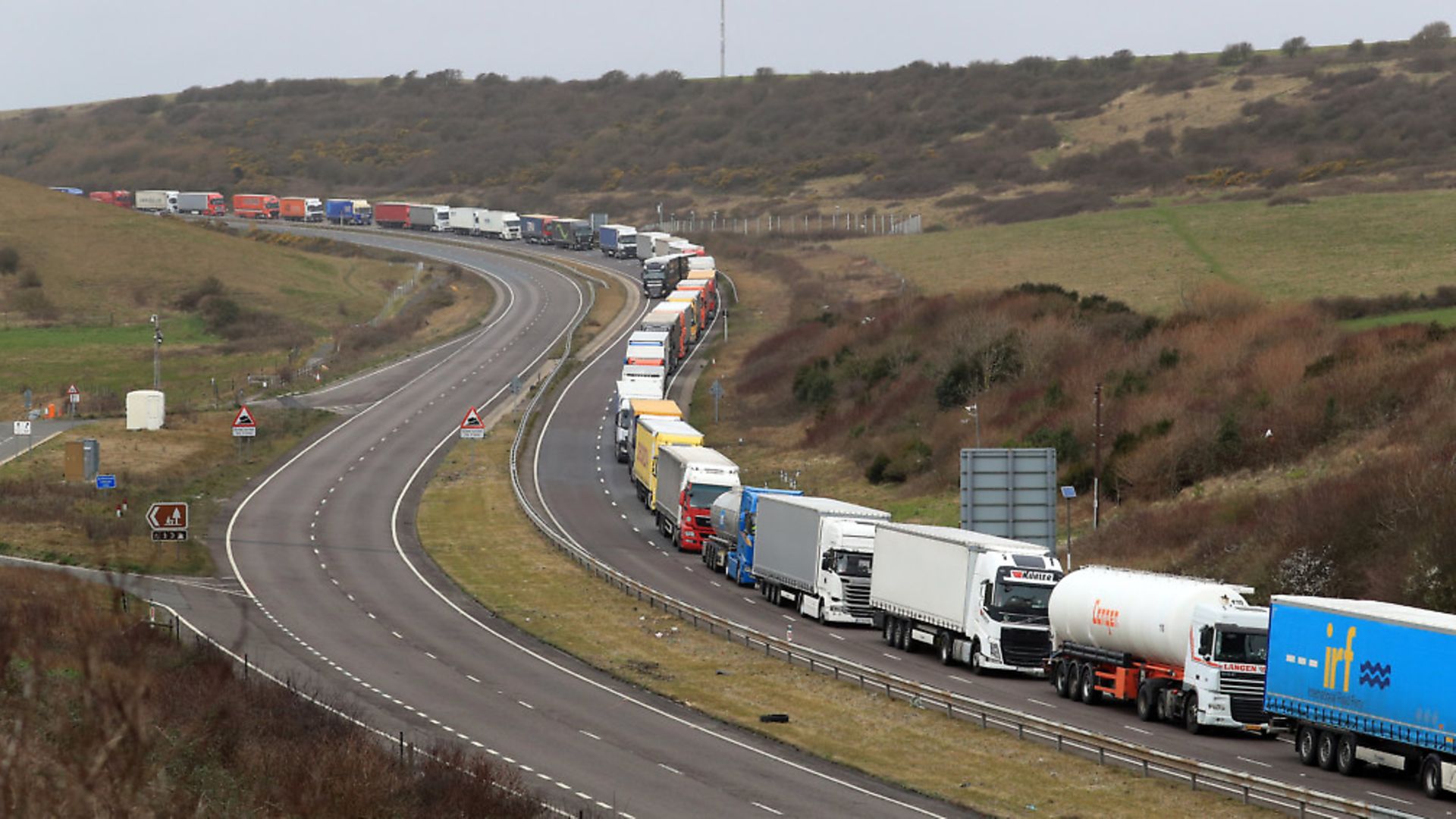
Three quarters of British truckers could be blocked from entering the EU if there is no Brexit trade deal in place by the end of the year, raising fresh concerns over food shortages in the UK.
Only 2,088 firms have received permits to enter Europe from January next year – down from 8,348 the year previous.
The Freight Transport Association (FTA) said companies, already in financial difficulty because of coronavirus, needed a solution quickly in order to prepare for the ‘Christmas peak’.
But Brexit negotiations remain deadlocked, with an agreement by October – the time needed to implement a deal before the end of the transition period on December 31 – being highly unlikely.
Britain would then be reliant on a limited number of permits, 2,088 to be precise, through the European Conference of Ministers of Transport (ECMT) scheme.
Sarah Laouadi, the FTA’s European policy manager, said the situation showed how vital it was to secure a free trade agreement with the EU.
‘If you learn whether you have the right to continue operating as a company on December 28 and the only fallback plan is the ECMT system, which requires applications and allocations for permits, it will be too late,’ she warned.
The Department for Transport (DfT) said it was ‘optimistic’ that an agreement could be reached, but referred to protecting only ‘the substantial flow of international haulage’.
UK hauliers will lose unfettered access to enter Europe once the UK leaves the EU on January 1, 2021.
The government has announced £705 million to help with post-Brexit trade checks and the building of 12 lorry parks near Dover port and others around the country.
Last October, when a no-deal Brexit seemed a probable reality, transport companies who made the most cross-Channel journeys were prioritised, which downgraded trade between Britain and the Republic of Ireland.
If the same strategy is adopted again, businesses crossing the Irish Sea might need to reroute, disrupting supply chains, the FTA warned.
Warning: Illegal string offset 'link_id' in /mnt/storage/stage/www/wp-includes/bookmark.php on line 357
Notice: Trying to get property 'link_id' of non-object in /mnt/storage/stage/www/wp-includes/bookmark.php on line 37






